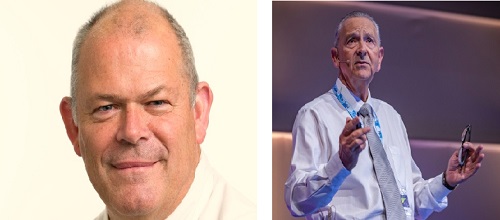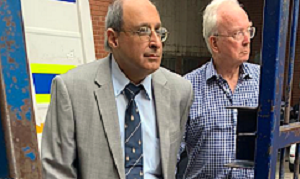
Medical Protection's Graham Howarth, head of medical services (SA) and Tony Behrman, business consultant write:
The recent arrest of colleagues on charges of culpable homicide have clearly initiated a sense of disquiet in the South African healthcare community. It is not only the realisation and anxiety by healthcare workers of their vulnerability to charges of culpable homicide, but also the way the arrests have been handled; their wide coverage and exposure in the lay press and television. It can be argued that a ‘trial by media’ has occurred with some publications offering their interpretation of the case with no obvious moderation of the articles, and without waiting until the court case where the facts and the arguments for and against can be heard, weighed up and then opined upon.
It is perhaps important to distinguish between the manner in which the arrests occurred, the publicity surrounding the arrests and the issue of doctors, negligence and culpable homicide. In the recent well-publicised case, two doctors handed themselves willingly over to the SAPS. They are well known in medical circles and unlikely flight risks.
Despite this they suffered the indignity of being handcuffed to one another and simultaneously exposed to the media. One has to ask what was gained by their exposure to the press at this time and at whose behest did it occur, if anyone’s. This is not the sort of beacon of hope and fairness that younger doctors would like to see; rather it is welcoming them into a profession under siege. This highly-publicised incident perhaps detracted from the very important principle of healthcare workers being prosecuted for culpable homicide.
The doctors concerned have been charged with culpable homicide with uncharacteristic haste. This was already a tragic case in that an apparently healthy youngster died after a routine procedure and our sympathies are with the family at this extremely difficult time. However, one tragedy should not be compounded by another; charges of culpable homicide are serious charges, even in the absence of all the media attention. Charges of this nature should be carefully considered and not reactionary.
The legal principles of culpable homicide as it pertains to South Africa are clear. Negligence on the part of an individual, which results in the unlawful killing of a human being, is classified as culpable homicide. Culpable homicide is distinguished from murder by the fact that murder is killing that is not only unlawful but also intentional – so to be found guilty of murder intent must be proved.
To prove negligence certain pre-requisites have to be met. In the healthcare arena, it must be shown firstly that the healthcare professional owed the patient a duty of care; secondly that the duty of care was breached – the care given was not of the standard expected under the circumstances. Finally, it must be shown that the breach of the duty of care was responsible for the harm caused. In civil litigation, if these tests are established, on the balance of probabilities, then a patient is entitled to compensation.
When prosecuting a medical case for culpable homicide the prerequisites for negligence are the same, however, there is a major difference; the burden of proof is more stringent. The steps must be proved to a higher standard of proof; beyond reasonable doubt. If you think the differences in the standard of proof are merely semantic think of the OJ Simpson case where the criminal case was unsuccessful while the civil case was successful.
Healthcare professionals are understandably concerned at the possibility of being prosecuted and even jailed for culpable homicide. As matters currently stand, an error of judgement that results in a patient’s death exposes one to potential prosecution and imprisonment. Criminalisation in the absence of any intent to harm is harsh and healthcare professionals are at risk. To expect the profession to be exempt from such charges is also unrealistic – healthcare professionals need to be held accountable – but criminalising errors of judgement, particularly in the fast moving and potentially hazardous healthcare environment seems unreasonably harsh.
So, when would it not be unreasonable to hold a healthcare professional morally and criminally responsible for suboptimal care resulting in an adverse outcome? At what level would it not be unreasonable to consider culpability to be criminal in nature? Strict liability, or liability without fault, where the adverse outcome alone needs to be proved, is clearly too low and inappropriate. Likewise, negligence, the reasonable professional under similar circumstances, is clearly adequate in the law of negligence and compensation but lacks any intent to harm, indeed on the contrary, and is a low threshold for a criminal conviction. Likewise, gross negligence lacks intent. Slips, lapses and mistakes can happen even to the best trained and most experienced and any expert would be hard pressed to claim otherwise.
Reckless care, where the healthcare professional shows a total indifference to and disregard for the safety of the patient and where the recklessness is responsible for the patient’s death, is not an unreasonable level of culpability to hold a professional criminally responsible. To be held criminally culpable as a professional the case needs to be clear and unequivocal.
Perhaps we should be looking to a jurisdiction like Scotland who interestingly, like South Africa, also use the term culpable homicide, as opposed to the term manslaughter used elsewhere. In Scotland, charges are only brought against doctors if an act is proved to be intentional, reckless or grossly careless. The Scottish law and its application is better suited to determining the culpability of a doctor in a patient death and indeed whether a prosecution is in the public interest.
It is clear that the vast majority of healthcare professionals do not set out to harm patients and to criminalise mistakes while working under difficult and complex conditions is surely not right. Criminal charges would best be reserved for those who have been reckless and the recklessness is responsible for the patient’s death, or, those rare individuals who wilfully harm patients.
It is hard to see who benefits from a system that goes against these principles – a family loses a loved one through tragic circumstances, a doctor may lose their career and face a jail sentence, and fear of personal recrimination becomes increasingly embedded across healthcare.
See also
[link url="https://www.medicalbrief.co.za/archives/arrest-warrants-for-specialists-a-direct-threat-to-healthcare-delivery/"]Arrest warrants for specialists a ‘direct threat’ to healthcare delivery[/link]
[link url="https://www.medicalbrief.co.za/archives/petition-to-drop-premature-criminal-charges-against-beale-and-munshi/"]Petition to drop ‘premature’ criminal charges against Beale and Munshi[/link]
Previous MPS columns
[link url="https://www.medicalbrief.co.za/archives/the-beauty-of-mediation-to-ease-the-trauma-of-medical-negligence-litigation/"]The beauty of mediation to ease the trauma of medical negligence litigation[/link]
[link url="https://www.medicalbrief.co.za/archives/the-risks-and-hazards-of-social-media-for-doctors/"]The risks and hazards of social media for doctors[/link]
[link url="https://www.medicalbrief.co.za/archives/we-all-have-a-role-in-tackling-the-burnout-endemic/"]We all have a role in tackling the burnout endemic[/link]
[link url="https://www.medicalbrief.co.za/archives/state-doctors-need-protection-more-than-ever-including-from-the-state/"]State doctors need protection more than ever, including from the state[/link]
[link url="https://www.medicalbrief.co.za/archives/tolerating-error-imperfect-system/"]Tolerating error in an imperfect system[/link]
[link url="https://www.medicalbrief.co.za/archives/nhi-bill-needs-address-indemnity-doctors-patients/"]NHI Bill needs to address indemnity for both doctors and patients[/link]
[link url="https://www.medicalbrief.co.za/archives/spiralling-litigation-time-strike-balance/"]Spiralling litigation: Time to strike a balance[/link]
[link url="https://www.medicalbrief.co.za/archives/power-outages-medical-practitioners-perspective/"]Power outages. A medical practitioners’ perspective[/link]
[link url="https://www.medicalbrief.co.za/archives/understanding-medicolegal-landscape-south-africa/"]Understanding the medico-legal landscape in South Africa[/link]
[link url="https://www.medicalbrief.co.za/archives/legal-permutations-good-samaritan/"]The legal permutations of being a Good Samaritan[/link]
[link url="https://www.medicalbrief.co.za/archives/covering-colleagues-responsibility-reconfirmed-2/"]

